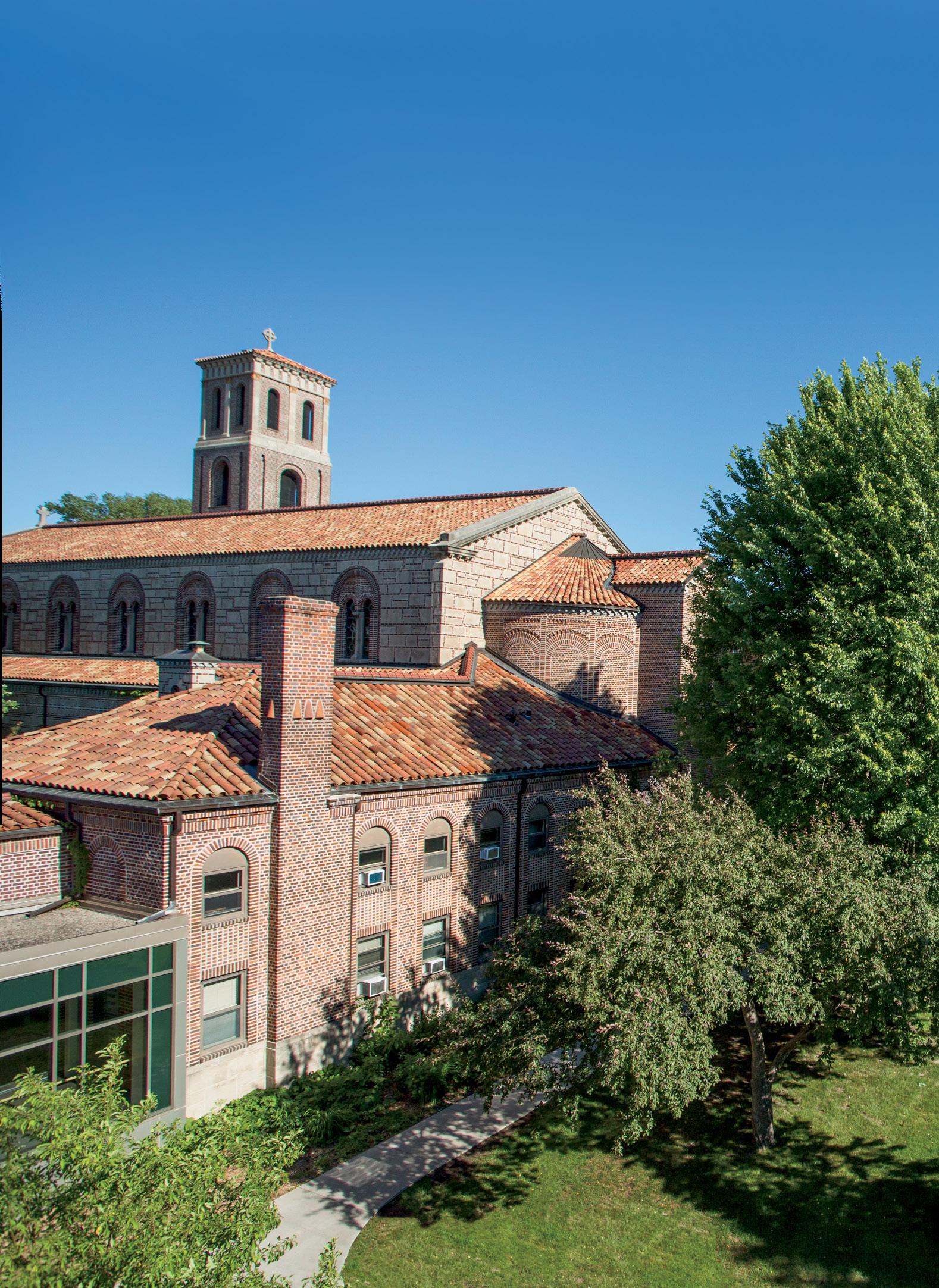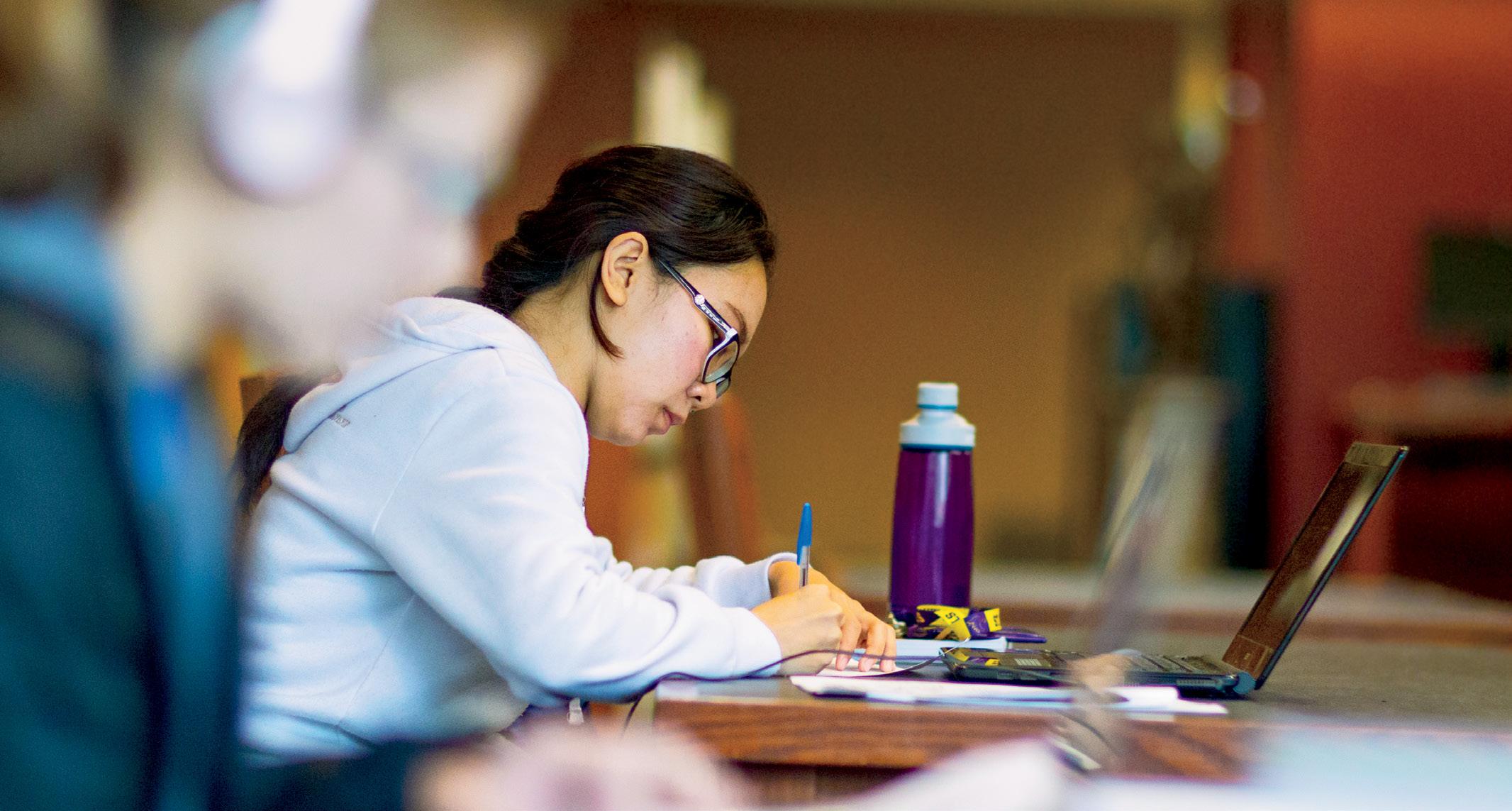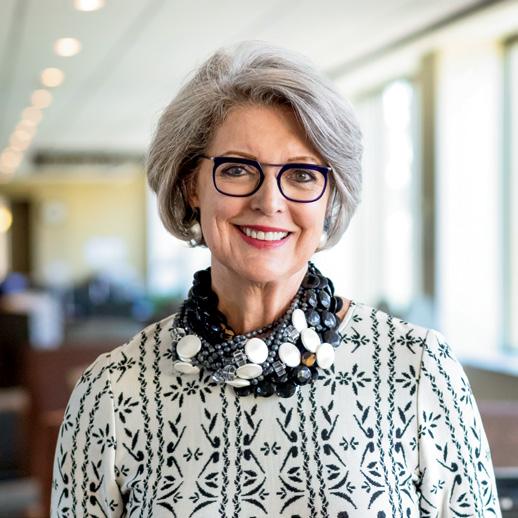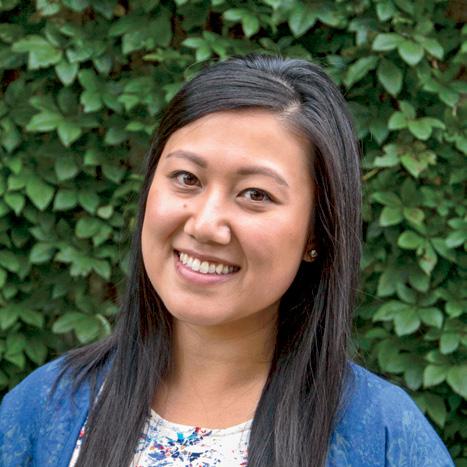
5 minute read
Maintaining Connection and Support for Students
For 115 years, the bedrock of St. Catherine University has been our commitment to each student — to empower and guide them on a journey from campus to beyond the gates. In March, the campus took on a new feel as it moved to a virtual mode due to the COVID-19 outbreak. The entire community — students, faculty, and staff — came together to quickly navigate and find innovative methods to maintain our commitment to students and a strong community in a time of heightened emotion and physical separation.
“One of the University’s greatest strengths and unique attributes is our community and how we come together in times of need. Additionally, St. Kate’s students are hardworking, dedicated, and persevere through challenges. This spring demonstrated that resilience,” says Seth Snyder, PhD, dean of students. “Although our physical offices on campus are quiet at the moment, all the support services in the St. Kate’s ecosystem are open, bustling, and remotely available. It’s incredible to see how everyone has adapted, and we are able to stay connected.”
HEALTH AND WELL-BEING
Stress is a given during ordinary college life, but the rapid onset of the pandemic’s extraordinary circumstances and the resulting social, cultural, and academic changes were new territory. These changes created unique stressors for students’ education as well as their personal lives.
Access to virtual counseling and mental health resources was a high priority as the University worked to move classes online. To maintain access to these services, St. Kate’s invested in a secure video-conference program that allows in-state students to book virtual appointments with the Counseling Center and Health and Wellness Clinic to provide counseling support and address students’ medication needs. Counselors are also working with out-of-state students to find additional solutions and resources that work for them.
“We are collectively experiencing a very stressful time,” says Heide Malat, PysD, LP, director of the Counseling Center. “Our biggest request from students right now is for an opportunity to talk to a receptive and objective person who really listens and is able to give helpful feedback and ideas. During virtual sessions, we typically talk to students about concepts and techniques for managing stress and encourage them to tap into various support systems.”
Those seeking solace through religion or faith have also been able to connect virtually. The Center for Spirituality and Social Justice (CSSJ) is providing virtual prayer opportunities and online liturgies for the community until in-person services can resume. On May 14, the CSSJ hosted a virtual prayer event that aired on Facebook for all community members. The virtual prayer service brought together students, faculty, staff, alumni, and others for connection and reflection on their emotional and spiritual journey as they navigate the pandemic — no matter their physical location.
COMMUNITY AND ACTIVITIES
One of the greatest changes St. Kate’s made in the spring was de-densifying the campus safely and quickly to reduce the risk of exposure and transmission of COVID-19. While employees transitioned to working remotely, Residence Life helped students return home safely while aiding the remaining 125 students who needed to remain on campus in relocating to housing that provided adequate space for social distancing and self-quarantining if needed. Residence Life staff maintained virtual activities and events for residents who remained on campus to ensure a sense of community and connection.
The various student clubs and campus centers where many students anchored their sense of community have also discovered innovative ways to stay connected. For example, Multicultural and International Programs and Services (MIPS) created a virtual couch — a nod to the office’s actual, physical couch — where students drop in to hang out together. The online space welcomes students to share and support one another. Student Center and Activities also continues to offer select programs. The Catherine G. Murphy Gallery spring exhibitions, including the student senior juried art exhibition, are available to view and experience on the gallery’s website.
But not all support and resources comes from faculty or staff.
The Wheel, the student newspaper, continued to publish online (stkateswheel.org), with a special May edition focused on student and community responses to COVID-19 and connecting in a new virtual world.
The College for Women Student Senate continued their commitment to uphold their duties through the end of their term in May. They met virtually and listened to student concerns while helping to allocate funds to the food shelf and the emergency grant program.
MEETING BASIC NEEDS
The financial impact of the pandemic has been felt far and wide, and St. Kate’s students were no exception.
The Coronavirus Aid, Relief, and Economic Securities (CARES) Act provided $1,322,523 for student grants to cover expenses related to disrupted campus operations during COVID-19. A University workgroup convened to determine how to distribute the funds and included input from students across all three colleges. The process identified three groups of eligible students to receive the funds: Federal Pell Grant Recipients, students with disrupted clinical work or fieldwork, and a general emergency grant fund for eligible students to apply for a grant. Funds were distributed directly to students from May through July.
Another major financial resource for students is St. Kate’s Access and Success program. In 2018, Access and Success received a $100,000 grant to establish the Northstar Access and Success Emergency Grant Fund for students who need assistance meeting basic needs (food, housing, childcare, medical care, and transportation). This grant fund, generously contributed by Northstar Education Finance, Inc., allows Access and Success to expand its reach and support for students, especially during the pandemic. In March and April, the program received 134 grant inquiries — nearly 75 percent of the previous year’s total. Requests continue to be submitted.
“Everyone’s plans were upended and the impact is staggering. COVID-19 has impacted every part of people’s lives, and the limited funding we have available doesn’t begin to address the need,” says Joan Demeules, MA, LSW, director of Access and Success. “Our social workers meet virtually with each student applying for a grant and assess their situation to develop plans to move forward, identify and connect them to resources, work to ensure that students are stable, and help them make it through this difficult time.”
Katie Fund annual scholarships also supported students, many who unexpectedly needed help to close financial gaps due to a job loss or furlough.
Food insecurity is another issue Katies face. The St. Kate’s Food Shelf has maintained operations, with some modifications, offering online ordering as well as curbside pickup. Students residing on campus have the option for delivery. The Food Shelf annually serves 120–140 students per month. April saw a slight uptick with 150 students, then 123 in May. Service continues through the summer.
Campus offices stand empty through the summer, but will welcome back their energetic community when we’re ready. Until then, continued virtual support and encouragement is available. St. Kate’s founders’ commitment to love thy dear neighbor is strong within this community today. University support is here as Katies, faculty, and staff navigate change together.








